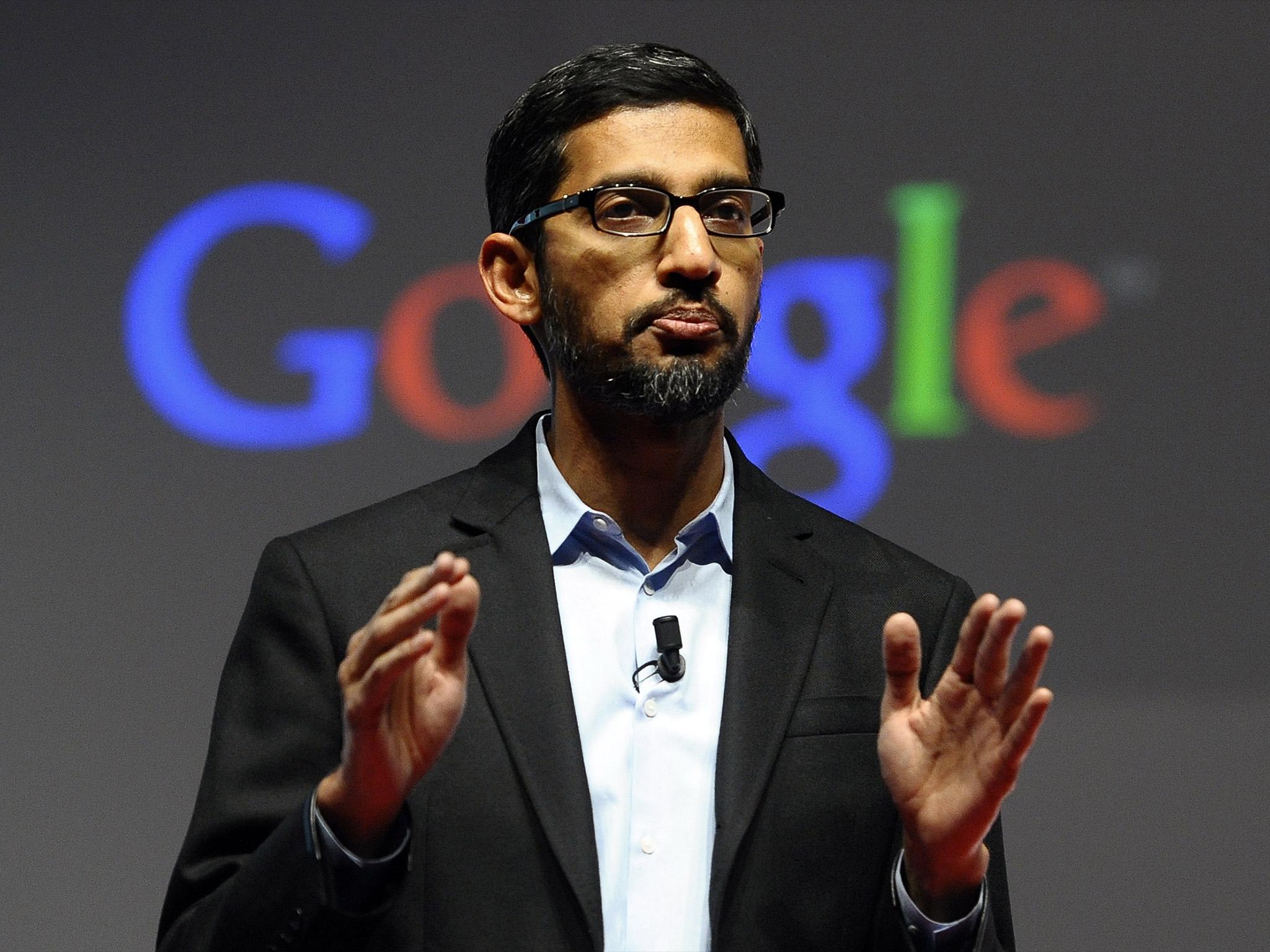Silicon Valley hits back on Donald Trump's refugee ban
Tech giant Google, Netflix, Apple and Facebook warn order could affect their companies' talent pool

Your support helps us to tell the story
From reproductive rights to climate change to Big Tech, The Independent is on the ground when the story is developing. Whether it's investigating the financials of Elon Musk's pro-Trump PAC or producing our latest documentary, 'The A Word', which shines a light on the American women fighting for reproductive rights, we know how important it is to parse out the facts from the messaging.
At such a critical moment in US history, we need reporters on the ground. Your donation allows us to keep sending journalists to speak to both sides of the story.
The Independent is trusted by Americans across the entire political spectrum. And unlike many other quality news outlets, we choose not to lock Americans out of our reporting and analysis with paywalls. We believe quality journalism should be available to everyone, paid for by those who can afford it.
Your support makes all the difference.Silicon Valley giants including Google, Facebook, Apple and Uber, have condemned Donald Trump’s executive orders on immigration and said they are preparing to hit back.
Thousands of staff in the tech industry could be affected by Mr Trump’s initiative, which bars refugees and travellers from seven Muslim-majority countries from entering the US.
Some executives said the ban, which bars anyone from Iran, Iraq, Libya, Somalia, Sudan, Syria and Yemen from entering the US for 90 days, violated their personal and company principles.
The tech industry relies on the talent of foreign workers from around the world and is concerned the US President could give the industry’s temporary worker permits a - known as H-1B - a complete makeover.
Chief executives of the industry’s major companies have strongly criticised the ban.
Google told its employees with passports from those countries to cancel any travel plans outside the US and to get in touch with the company’s human resources department if they are not in the country.
The internet giant's chief executive, Sundar Pichai, said in a memo that at least 187 of its employees could be affected by the ban but it is unclear how many of them are currently outside the US.
"We've always made our views on immigration known publicly and will continue to do so," he said.
In an official statement, Google said: "We're concerned about the impact of this order and any proposals that could impose restrictions on Googlers and their families, or that could create barriers to bringing great talent to the US."
Apple’s CEO Tim Cook also hit back at Mr Trump’s executive order and made representations to the White House about the “negative effects” it will have on the company.
In a memo to his employees, Mr Cook wrote: "I share your concerns" about Trump's immigration order. It is not a policy we support. Apple would not exist without immigration, let alone thrive and innovate the way we do. We have reached out to the White House to explain the negative effect on our coworkers and our company.”
Apple founder Steve Jobs was the biological son of a Syrian immigrant.
The company said its human resources department was in contact with those affected although numbers have not been confirmed.
Facebook founder Mark Zuckerberg also took to social media to share his concerns over the ban.
“The United States is a nation of immigrants, and we should be proud of that,” he wrote, adding his grandparents came from Germany, Austria and Poland and his wife Priscilla's parents were refugees from China and Vietnam. “These issues are personal for me even beyond my family. A few years ago, I taught a class at a local middle school where some of my best students were undocumented.
He added: “They are our future too. We are a nation of immigrants, and we all benefit when the best and brightest from around the world can live, work and contribute here."
But some of the Silicon Valley's top leaders took a blunter stance on the ban.
Netflix CEO Reed Hastings wrote on Facebook that Mr Trump's "actions are hurting Netflix employees around the world, and are so un-American it pains us all. Worse, these actions will make America less safe (through hatred and loss of allies) rather than more safe."
EBay founder Pierre Omidyar, whose parents are Iranian, also slammed the order as "simple bigotry” while Tesla Motors and SpaceX founder Elon Musk tweeted that "many people negatively affected by this policy are strong supporters of the US" who don't "deserve to be rejected."
Microsoft Chief Executive who was born in India, said the company will continue to be an advocate on the issue.
“As an immigrant and as a CEO, I’ve both experienced and seen the positive impact that immigration has on our company, for the country, and for the world,” he wrote in an online post.
But the tech industry is bracing itself for more announcements on immigration regulation.
A leaked draft of an executive order published in The New York Times suggests Mr Trump’s next target might give the H1-B programme, which lets the Silicon Valley bring foreigners with technical skills to the US for three to six years.
The US grants visas to 85,000 foreign workers a year through a lottery system but Mr Trump’s administration wants to revise the allocation process for the H-1B “to ensure that beneficiaries of the program are the best and the brightest”.
Join our commenting forum
Join thought-provoking conversations, follow other Independent readers and see their replies
Comments